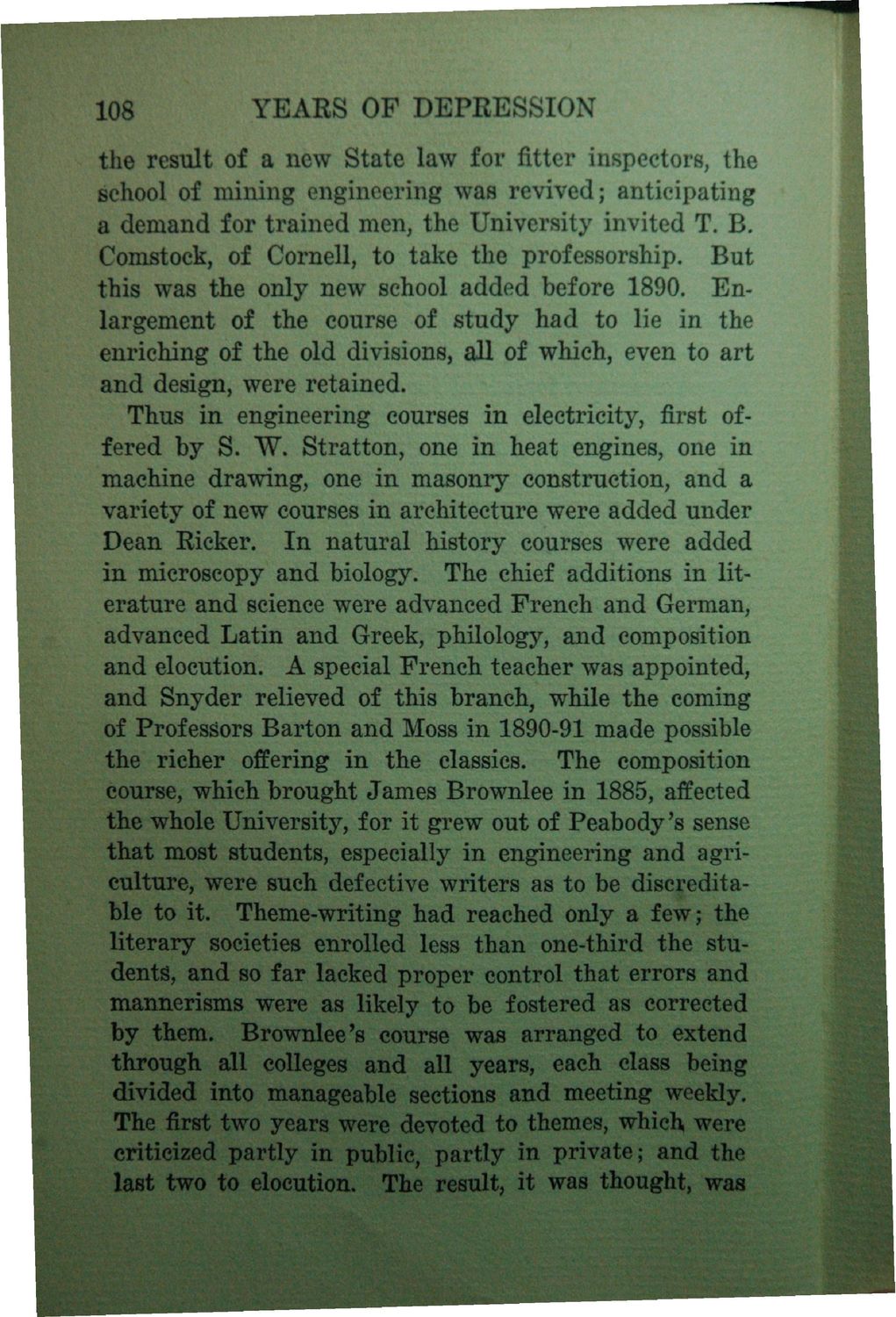| |
| |
Caption: Book - History of the University (Nevins)
This is a reduced-resolution page image for fast online browsing.

EXTRACTED TEXT FROM PAGE:
108 YEARS OF DEPRESSION the result of a new State law for fitter inspectors, the school of mining engineering was revived; anticipating a demand for trained men, the University invited T. B. Comstock, of Cornell, to take the professorship. But this was the only new school added before 1890. Enlargement of the course of study had to lie in the enriching of the old divisions, all of which, even to art and design, were retained. Thus in engineering courses in electricity, first offered by S. "W. Stratton, one in heat engines, one in machine drawing, one in masonry construction, and a variety of new courses in architecture were added under Dean Ricker. In natural history courses were added in microscopy and biologyJ| The chief additions in literature and science were advanced French and German, advanced Latin and Greek, philology, and composition and elocution^A special French teacher was appointed, and Snyder relieved of this branch, while the coming of Professors Barton and Moss in 1890-91 made possible the richer offering in the classics. The composition course, which brought James Brownlee in 1885, affected the whole University, for it grew out of Peabody's sense that most students, especially in engineering and agriculture, were such defective writers as to be discreditable to it. Theme-writing had reached only a few; the literary societies enrolled less than one-third the students, and so far lacked proper control that errors and mannerisms were as likely to be fostered as corrected by them. Brownlee's course was arranged to extend through all colleges and all years, each class being divided into manageable sections and meeting weekly. The first two years were devoted to themes, which, were criticized partly in public, partly in private; and the last two to elocution. fcThe result, it was thought, was
| |